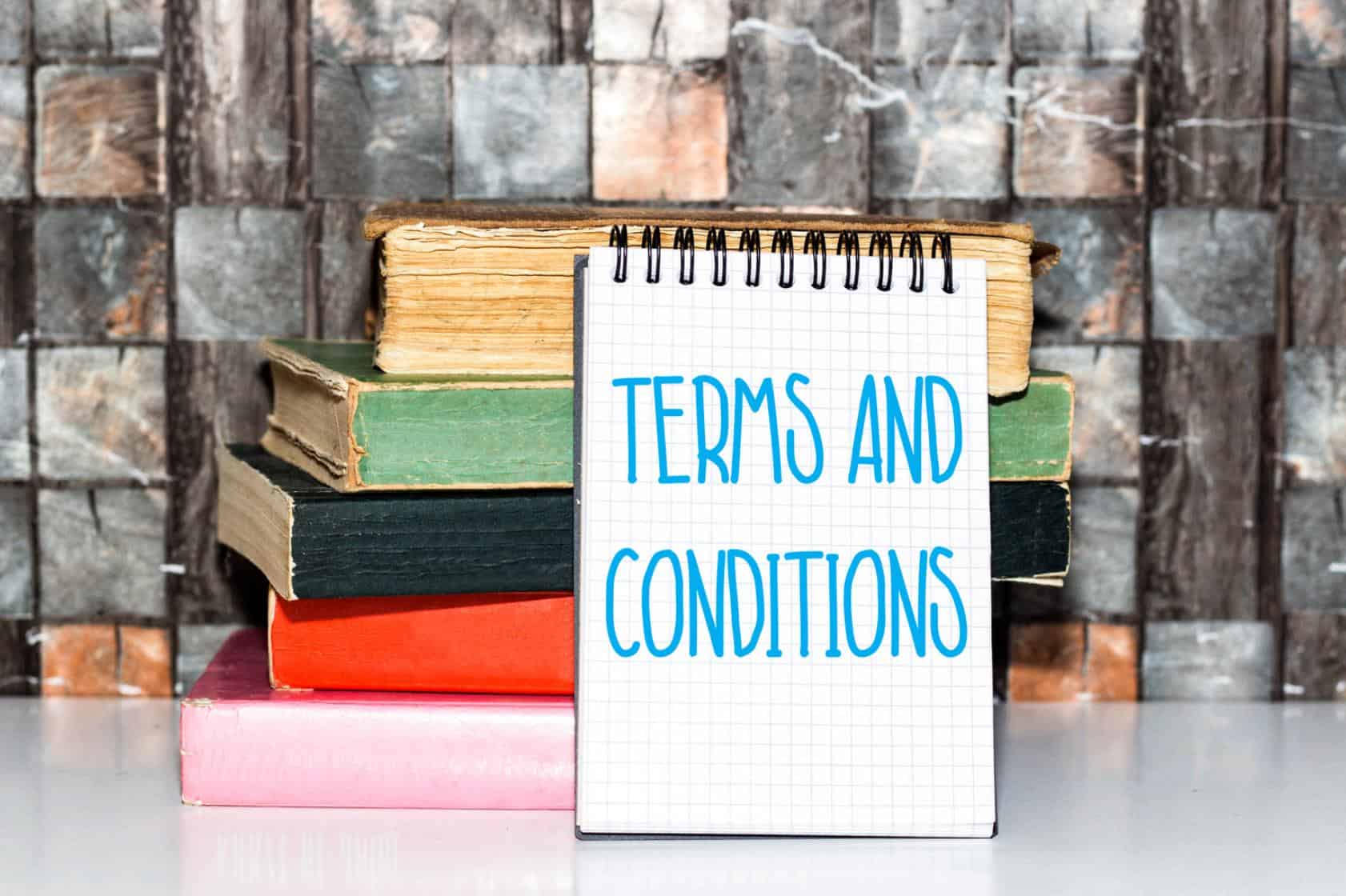We get it… they tend to be long, complicated, contain a lot of ‘what-ifs’, and does anyone even bother to read them?
But T&Cs are nevertheless extremely important to have, and it is imperative to get them right from the start. Preparing an effective set of T&Cs is not a ‘due tomorrow, do tomorrow’ kind of exercise and no… you can’t use ChatGPT as a ‘cost effective’ get around. You should take proper advice to come up with terms that are appropriate for your business.
T&Cs need to reflect the sector you are in and how you conduct that business. There really is little utility in simply ‘copying’ any old set of standard terms, that are not then tailored to your requirements as a supplier. They also may not even cover you for the commercial and legal risks that you were seeking to cover in the first place!
This is where we can help you.
What are terms and conditions?
They are a comprehensive set of contractual terms setting out how you will deal with your customers. These are generally a list of non-negotiable terms that every customer needs to adhere to when doing business with you, usually on a ‘take-it-or-leave-it’ basis.
If used properly, the terms will form the basis of a legally binding contract between you and your customer.
Why should my business have them?
Whilst there is no legal requirement for a business to have them, the risk of not having them can far outweigh the commercial cost of getting a comprehensive set of tailored terms drawn up by an experienced solicitor.
These risks can include:
Lack of clarity between you and your customers.
A well-drafted set of T&Cs will set out, in black and white, the precise terms on which you and the customer agree to do business.
Each party will therefore have a tangible set of terms that they can refer to at any time to understand their respective obligations. Who is responsible for doing what and when (eg delivery, timescales, payment terms, etc).
If things go wrong, the court will have recourse to this document as the basis upon which legal relations were entered into. Without this, terms will be implied into the contract by statute and the court will have to decipher what was actually agreed between the parties. Leading to uncertainty and unnecessary legal costs.
Cash flow
If your customers don’t pay, you may be at risk of cash flow difficulties or of breaching contracts with your own suppliers. There is a natural knock-on effect, and the stronger the basis you have for “encouraging” your customers to pay promptly, the better.
Not being able to limit your liability as much as you would like to.
There are some legal risks which cannot be limited by contractual terms, such as death and personal injury, or fraud, or virtually anything where you are dealing with a consumer (!), but if your terms are B2B (business to business), there is considerable scope for limiting the types and amount of losses you could be responsible for if something does go wrong. We would, of course, recommend that you take advice from a solicitor to help you determine just how far you can effectively limit your liability – contract law has lots of rules about what is considered to be fair and acceptable in such circumstances.
No ‘get-out-of-jail-free-card’.
We all remember the pandemic…right? Well, it’s no secret that the pandemic significantly disrupted supply chains and that a lot of businesses were desperately trying to rely on their ‘force majeure’ clauses. If well-drafted and incorporated correctly, then these clauses can release you from liability if an extraordinary event, outside of your control, would otherwise cause you to be in breach of the contract. One of the ‘may never happen but definitely worth having clauses’.
Customer’s T&Cs.
Customers are increasingly using their own T&Cs to govern any purchases they make, imposing increased obligations on their suppliers and giving themselves very generous payment terms. One way of combatting this is to make sure that you are properly using your T&Cs and incorporating them into your contracts to the exclusion of any terms put forward by the customer.
To discuss the above or for help in preparing a bespoke set of T&Cs for your business, you can contact Ines Ouadah in the Commercial Team at Gorvins Solicitors. Call Ines on 0161 930 5117; or email her at ines.ouadah@gorvins.com; or use the online form.
In conjunction, we will be posting a part 2 to this article, which will discuss how to effectively use T&Cs.

